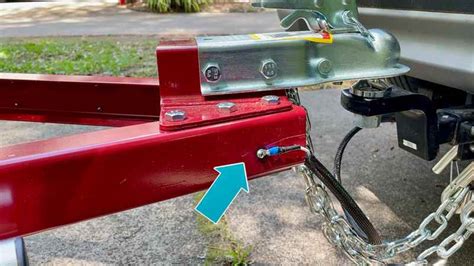Get Your Trailer Lights Working: A Comprehensive Grounding Guide
Trailer lights are crucial for safety, ensuring visibility and preventing accidents on the road. But a common culprit behind malfunctioning trailer lights is a poor ground connection. This comprehensive guide will walk you through troubleshooting and fixing grounding issues, getting your trailer lights working reliably. We'll cover everything from understanding basic electrical principles to advanced troubleshooting techniques.
Why is Grounding Important for Trailer Lights?
Before diving into solutions, let's understand the "why." Trailer lights utilize a ground (or earth) connection to complete the electrical circuit. Electricity needs a path to flow—from the vehicle's battery, through the lights, and back to the battery. The ground wire provides this return path. Without a proper ground, the circuit is incomplete, and your lights won't work. This is often the overlooked problem when diagnosing trailer light malfunctions.
Identifying Grounding Issues: Common Symptoms
Several symptoms indicate a grounding problem:
- No lights at all: This is the most obvious sign. If none of your trailer lights are functioning, a poor ground is a high probability.
- Intermittent lights: Lights flickering or turning on and off randomly often signal a loose or corroded ground connection.
- Dim lights: A high-resistance ground connection restricts current flow, resulting in dim or weak illumination.
- Lights working only sometimes: This can occur if the ground connection is intermittent, making contact only under certain conditions (e.g., vibration).
How to Test for Grounding Problems
Testing for a poor ground involves checking the continuity of the ground wire. You'll need a multimeter (available at most auto parts stores).
- Locate the ground wire: This is typically a bare, uninsulated wire connected to the trailer's frame or a designated grounding point.
- Set your multimeter: Select the "continuity" setting (usually represented by a diode symbol).
- Test the connection: Connect one multimeter probe to the ground wire and the other to a known good ground (like the vehicle's chassis). A continuous beep indicates a good ground connection. No beep means you've found your problem.
Note: If you’re unsure of the location of the ground wire, consult your trailer’s wiring diagram.
Troubleshooting and Fixing Grounding Problems
Once you've identified a poor ground, the fix is usually straightforward.
- Clean the connection: Corrosion is a common enemy of good electrical contact. Use a wire brush or sandpaper to clean the ground wire and the contact point on the trailer frame. Apply a dielectric grease to prevent future corrosion.
- Tighten loose connections: Ensure all connections are securely fastened. Loose bolts or terminals can significantly impact ground quality.
- Replace corroded wires: If the ground wire is severely corroded or damaged, replace it with a new one of the same gauge. Use appropriate connectors to make the connection.
- Improve ground connection: Sometimes, a single ground point may not be sufficient, especially on larger trailers. Consider adding an additional ground wire to a different location on the frame for improved reliability.
What if it's not the Ground? Other Troubleshooting Tips
If you've checked the ground and still have problems, consider these possibilities:
- Blown fuses: Check the fuses in both your vehicle and trailer's wiring harnesses.
- Wiring issues: Inspect the wiring for breaks, shorts, or damage.
- Faulty light bulbs: Replace any bulbs that may have burned out.
- Connection problems at the vehicle harness: Ensure the trailer connector is properly plugged into the vehicle’s tow hitch.
Preventing Future Grounding Problems
Regular maintenance is key to avoiding issues.
- Periodic inspection: Visually inspect your trailer's wiring harness and ground connections regularly for signs of damage or corrosion.
- Clean connections: Clean any connections showing signs of corrosion.
- Use dielectric grease: Applying dielectric grease to all connections protects against corrosion.
By following these steps and understanding the importance of proper grounding, you can keep your trailer lights working safely and reliably. Remember, safety on the road is paramount. If you are uncomfortable working with electrical systems, seek the assistance of a qualified mechanic.

